Student Activities
Fun and educational activities inspired by our curriculum units and easy enough to do at home with minimal materials.
Electrolysis — Making Hydrogen From Water
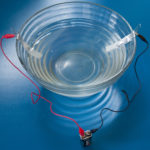
This experiment demonstrates how water can be separated into hydrogen and oxygen using household items and a 9-volt battery or a small solar panel as a power source.
Human Sundial
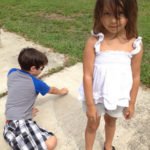
See what happens when a human is used as a sundial.
Sundials You Can Build
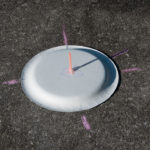
Ever wonder how people used to tell time without a clock or watch? Learn to make two different sun dials.
Solar Cookers
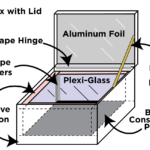 Learn how to make several different solar cookers with simple materials. Also find tips for cooking and delicious recipes.
Learn how to make several different solar cookers with simple materials. Also find tips for cooking and delicious recipes.
Solar Still

Discover how easy it is to purify water… a great survival skill.
Ice Cube Race
Race two ice cubes, one in the sun and the other in the shade, to see which melts first.
Rainbows, Rainbows Everywhere!
 See if you can find the rainbows hiding all around you.
See if you can find the rainbows hiding all around you.
Solar Electricity
 Can you use the sun to make a motor spin? Find out with this activity.
Can you use the sun to make a motor spin? Find out with this activity.
Sun and Shade
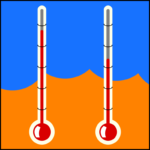 Is it really cooler in the shade? If so, by how much, and why?
Is it really cooler in the shade? If so, by how much, and why?
Sun Tea Battle
 Which tastes better? Tea made from the sun or on a stove. Try this blindfolded taste taste to find out.
Which tastes better? Tea made from the sun or on a stove. Try this blindfolded taste taste to find out.
UV Beads and Sunscreen
 Test different sunscreens to see which works the best at stopping UV rays.
Test different sunscreens to see which works the best at stopping UV rays.
Water Vapor, it’s a Gas!
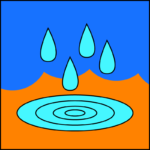 Where does the water go from a puddle after the sun dries it up? Find out the answers using this activity.
Where does the water go from a puddle after the sun dries it up? Find out the answers using this activity.
Solar Word Search
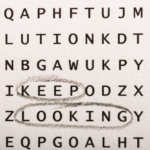 Find solar related words in these word searches, one designed for Elementary students, the other for Secondary students.
Find solar related words in these word searches, one designed for Elementary students, the other for Secondary students.
Solar Word Search (Elementary)
Solar Word Search (Secondary)
Haiku Challenge
 Haiku is a Japanese form of poetry usually written about the natural world or environment. It often uses 17 syllables displayed in three lines of text.
Haiku is a Japanese form of poetry usually written about the natural world or environment. It often uses 17 syllables displayed in three lines of text.
- Download the pdf. Pick one of the provided Haiku. Give it a title and draw a picture of what it means to you.
- Try writing and illustrating one of your own.
Science Fair Help
View tips and get ideas about science fair projects using renewables.
Lending Library Materials
The Education Department at FSEC has many resources available for loan to Florida teachers and civic leaders. These materials are designed to foster an understanding of solar and renewable energy technologies in a hands-on fashion. Students learn about these technologies by experimentation.
Classroom Science Kits – (Each kit contains enough materials for a class of 24 students.)
-
- Solar Matters Hands-On Kit (K – 8):
Materials for a classroom to perform the investigations in our Solar Matters activity units. Kits include small solar panels, motors, propellers, color paddles, magnifying glasses, protractors, thermometers, UV sensitive beads, 2 videos, and various printed resources.
Typical lending time 2 to 3 weeks. - Understanding Solar Energy Hands-On Kit (9 – 12):
Materials to perform the investigations in our Understanding Solar Energy high school unit. Kit includes materials for four working groups. Included for each group is a 3 volt panel, four mini panels, solar meter, multimeter, wires, protractor, thermometer, laboratory exploration sheets and various printed resources.
Typical lending time 2 to 3 weeks. - Solar Electricity Investigation Kit:
Kit includes a classroom set (15 each) small photovoltaic panels, motors and propellers, 5 milliamp meters and instructions. This kit is also popular for displays at events.
Typical lending time 1 week. - High Energy Hydrogen Hands-On Kit (3 – 12):Materials to complement the High Energy Hydrogen activity units. Kit includes reversible PEM fuel cells (1.5 volt), photovoltaic panels, wires, motors, piezzo lighters and pipette rocket equipment, a video and various printed resources.Typical lending time 2 weeks.
- Solar Thermal Investigation Kit:
Kit includes the materials needed to conduct a classroom experiment in solar thermal, including four trays and lids, thermometers, graduated cylinder and instructions.
Typical lending time 1 week.
- Solar Matters Hands-On Kit (K – 8):
Books and Other Resources
-
- Junior Solar Sprint Competition Kit:
Junior Solar Sprint kits which include the regulation panel and motor are available for $25 (include $3 per shipment if UPS or postal delivery is required). - Planet Janitor Coloring Books:
Planet Janitor, a coloring book which teaches an environmentally friendly message in English and Spanish, may be downloaded for free here. Printed copies may be purchased for $2.00 each (include $3 per shipment for postage). Planet Janitor coloring books may be reproduced for use in the classroom. - Clean Air Coloring Book:
Learn about various fuel and electricity sources that can be used to help clean up the air by moving away from fossil fuels.
- Junior Solar Sprint Competition Kit:
Printed Copies
Printed copies of our various educational units are also available for those who do not wish to download and print their own copies. The price for each unit is $36 plus $3 postage per shipment.
How to obtain materials:
Materials from the lending library are only available to schools and organizations in the state of Florida. A fee to cover shipping, and a signed statement of responsibility are required at the time of shipment. The availability of kits varies. It is suggested that kits be reserved several months in advance of their intended dates of usage.
For questions, or for availability of specific resource material, please contact Penny Hall at penny@fsec.ucf.edu or by phone (321) 638-1018. Please state which kit(s) you are interested in and give a range of dates for their usage.
Educational Presentations
Agrivoltaics and Lego Low Impact Solar Farm
A Florida Fable “The Foreign Fuel”
Be the Change in the Messed up World | Rob Greenfield | TEDxIHEParis
Solar + Storage = Resiliency
Sustainable Orlando
My Path to an Energy Career
Lanes Without Limits — Mulberry High School Electrathon
Navigating the Food, Energy and Water Nexus
Explore the Lagoon (LIVE)
EnergyWhiz Students Taking Charge of Their Energy Future
Climate Change and What You Can Do
SunCatcher: KUA’s Solar Energy Education Trailer
Working Towards a Sustainable Future
Bike Composting
Rain Barrels: Build or Buy and How They Work
Green Sustainable Buildings
Touring UCF’s district energy plants
Recycle Brevard: Putting the 3Rs into Practice
Transportation Electrification Efforts in Florida
Climate Change and Solar Energy
Sustainable Transportation
Building a BioDigester and Feeding the Domestic Dragon
External Websites
Design a Renewable Future
Renewable Energy sources are easy to find, but using them to power cities and towns is far more complicated. This site challenges you to sort through variables and design energy systems that meet demand and save the greatest amount of carbon emissions for the least amount of money.
Calculate Solar Power on Your Roof
The PVWatts Calculator estimates the energy production and cost of energy of grid-connected photovoltaic (PV) energy systems throughout the world. It allows homeowners, small building owners, installers and manufacturers to easily develop estimates of the performance of potential PV installations.
Water Use Calculator
Use this calculator to get an idea of how much water your household uses in a day, week, month, and year.
Climate Smart Florida
This site contains activities, lessons, and in-depth information about how climate change impacts Florida and what can be done.
Climate Change Haiku
What happens when a scientist picks up a paintbrush? A 2,000-page report is condensed into a beautiful (and concise) work of art. This all-time favorite Sightline article from 2013 is part poetry, part watercolor, and part powerful climate change talking points.
Brevard County’s Recycling Kids Corner
Learn about recycling from RC the Recycling Cat in a few short videos.
World Population Interactive Map
Learn about the impact of population growth and important milestones in human history and view other key data including land use, fertility rates, CO2 emissions, life expectancy, and urbanization.


